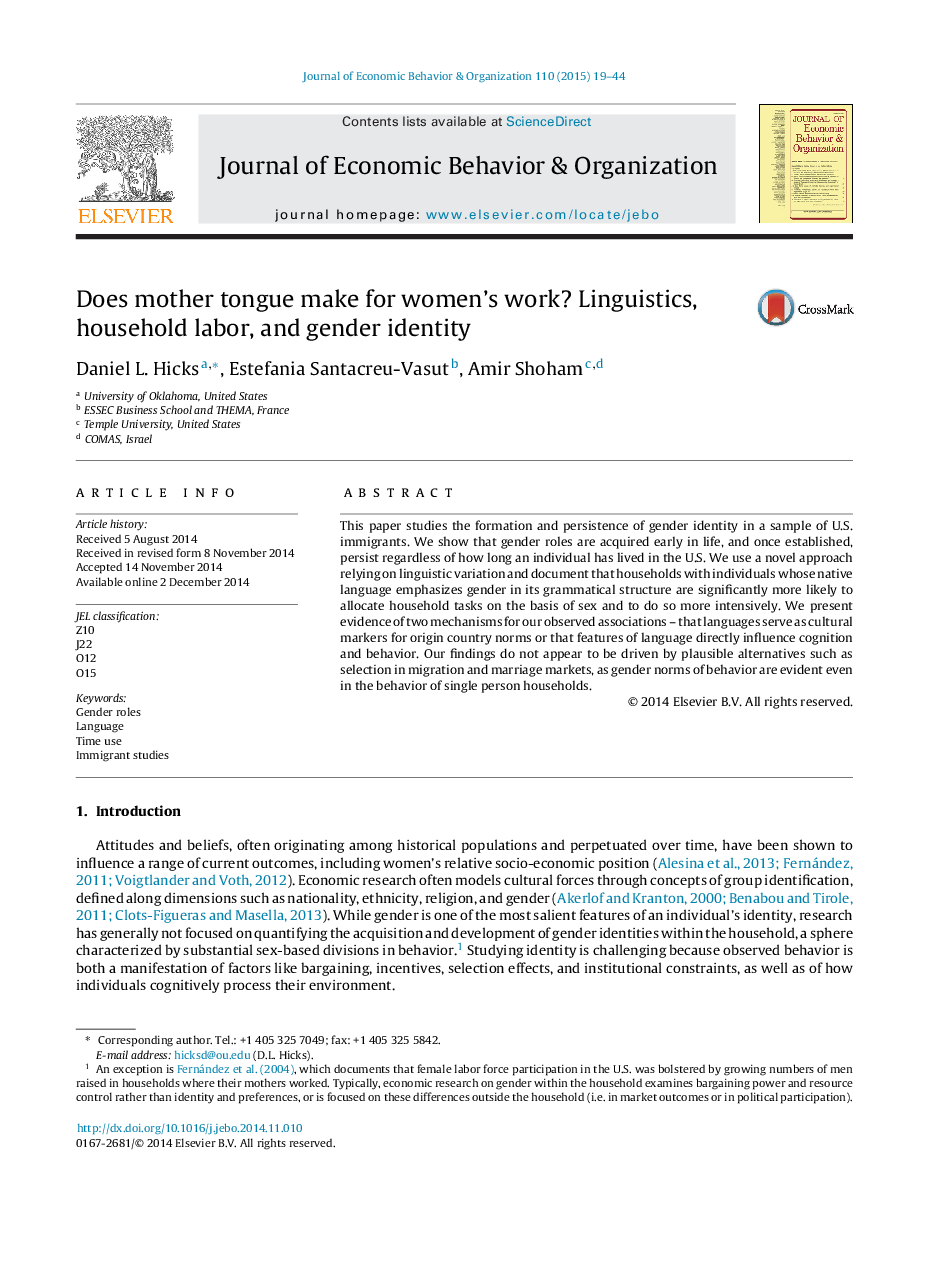| Article ID | Journal | Published Year | Pages | File Type |
|---|---|---|---|---|
| 883471 | Journal of Economic Behavior & Organization | 2015 | 26 Pages |
•Examines time use among the U.S. immigration population.•Studies formation, persistence, and characteristics of gender roles in the home.•Brings novel measures of grammatical gender in language to economic study.•Documents a robust connection between gender in language and gender norms.•Examines theory and evidence of underlying mechanisms for this relation.
This paper studies the formation and persistence of gender identity in a sample of U.S. immigrants. We show that gender roles are acquired early in life, and once established, persist regardless of how long an individual has lived in the U.S. We use a novel approach relying on linguistic variation and document that households with individuals whose native language emphasizes gender in its grammatical structure are significantly more likely to allocate household tasks on the basis of sex and to do so more intensively. We present evidence of two mechanisms for our observed associations – that languages serve as cultural markers for origin country norms or that features of language directly influence cognition and behavior. Our findings do not appear to be driven by plausible alternatives such as selection in migration and marriage markets, as gender norms of behavior are evident even in the behavior of single person households.
